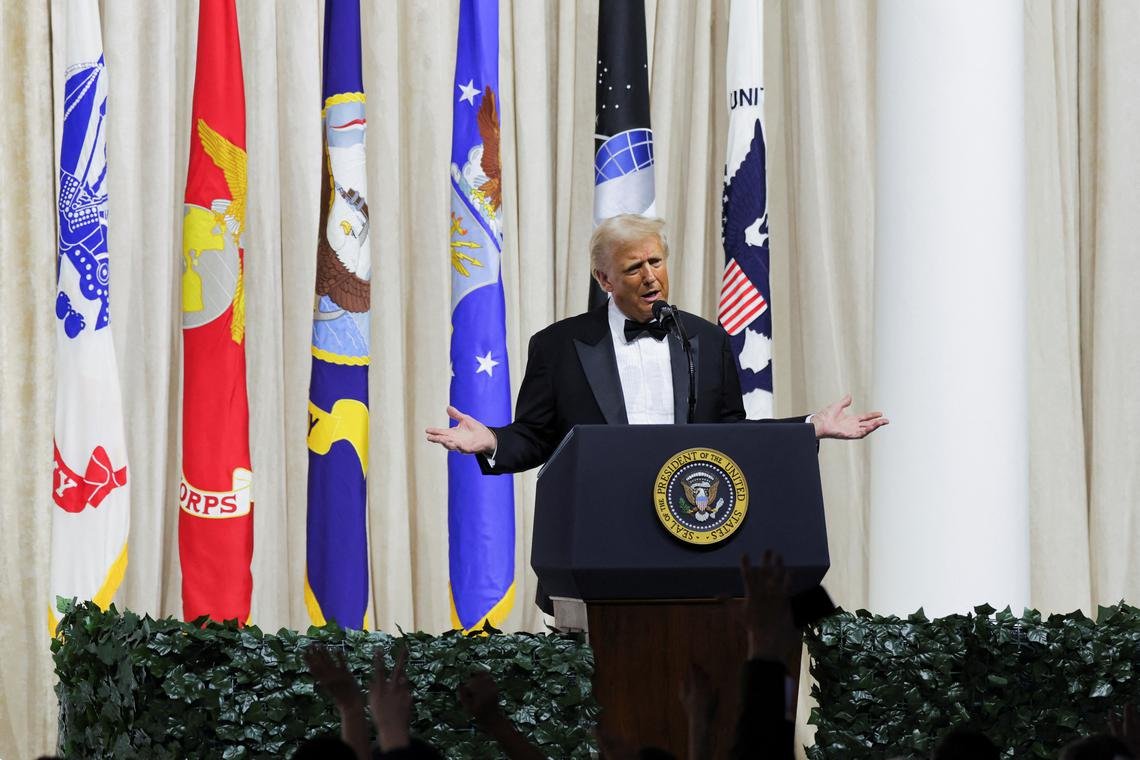WASHINGTON – During his first term in office, US President Donald Trump applied his particular brand of diplomacy with Washington’s adversaries, publicly befriending Russia and North Korea while separately piling pressure on China and Iran.
This time, he faces a different kind of challenge: a more united group of US antagonists who have drawn closer following Russia’s 2022 invasion of Ukraine.
Mr Trump, who took office on Jan 20, has vowed to end Russia’s war in Ukraine, curb Iran’s nuclear programme and counter China while building up the US military.
But in the past few years, Chinese President Xi Jinping and Russian President Vladimir Putin have forged a “no-limits partnership,” with Beijing giving Russia the economic support it needs to sustain its war in Ukraine.
On Jan 21, Mr Putin and Mr Xi proposed a further deepening of their strategic partnership during a long phone call after Mr Trump was sworn in as US president.
Russia has also signed strategic pacts with North Korea in June 2024 and Iran on Jan 17.
The grouping of four US foes, which former president Joe Biden’s ambassador to China recently called an “unholy alliance,” adds up to a loss of leverage for the US and its partners, say analysts.
“The dilemma for Trump, who has expressed a desire to ‘get along with Russia,’ and who is trying to squeeze China on trade, is that Moscow’s partnership with Beijing limits both Russian willingness to engage with Washington and Chinese vulnerability to US pressure,” said Mr Daniel Russel of the Washington-based Asia Society Policy Institute, who headed East Asia policy under former President Barack Obama.
Russia has weathered intense Western sanctions largely thanks to massive purchases of Russian oil by China and a supply of dual-use goods that the previous Biden administration said prop up the Russian defense industrial base, a charge China denies.
North Korea is supplying soldiers and weapons for Russia in Ukraine and has rapidly advanced its nuclear missile programme.
And experts fear Iran, though weakened by Israel’s assault on its regional proxies, could restart its effort to build a nuclear weapon.
Members of the new administration acknowledge the challenge.
“China is buying oil from Iran for pennies on the dollar, Iran is using that to send missiles and drones into Russia, that is then hitting Ukrainian critical infrastructure,” said Mr Mike Waltz, the incoming national security advisor in a Fox News interview in November.
In his Senate confirmation hearing last week, Secretary of State Marco Rubio labelled China as the gravest threat facing the United States and accused Moscow, Tehran and Pyongyang of sowing “chaos and instability.”
Peeling allies away from China
Mr Zack Cooper, a senior fellow focused on Asia at the American Enterprise Institute, said he thinks Mr Trump’s team “will try to peel countries away from China.”
“They seem to want to wedge Russia, North Korea and Iran away from China, which means differentiating these threats rather than implying that they are inter-related,” Mr Cooper said. “So pushing for a deal with Pyongyang and another one with Moscow seems most likely to me.”
Dividing the partners will not be easy.
North Korea, for one, may have less incentive to engage directly with the United States, said Mr Michael Froman, who served in Mr Obama’s Cabinet as the US trade representative and is now president of the Council on Foreign Relations think tank.
While Mr Trump during his first term thought he could reach a deal with Pyongyang, Mr Froman said it was unclear whether North Korea has an interest in engaging with the US now that it has broader support from Russia and China.
Mr Trump held unprecedented summits with North Korean leader Kim Jong Un during his first term and touts their rapport.
Mr Trump’s team is again discussing pursuing direct talks with Mr Kim.
Some cracks in the countries’ ties are starting to appear.
Former deputy US Ambassador to the United Nations under Mr Biden, Mr Robert Wood, questioned whether Tehran could rely on Moscow for help, citing the lack of Russian support for its ally, former Syrian President Bashar al-Assad, shortly before he was ousted.
“If I were Iran and I looked at how Russia abandoned Assad, I would be very concerned,” Mr Wood said.
On Iran, Mr Trump appears likely to return to the policy he pursued in his previous term that sought to wreck Iran’s economy to force the country to negotiate a deal on its nuclear programme, ballistic missile programme and regional activities.
Mr Wood said all such efforts will be easier if the new administration focuses on strengthening US alliances, a US asset that Mr Trump downplayed during his first term in office.
“You try to divide them where you can,” he said, referring to China, Russia, Iran and North Korea. “It’s so critically important to have and be able to rely on the kind of alliances that we have, because the United States can’t take on all of these players by themselves.” REUTERS
Join ST’s Telegram channel and get the latest breaking news delivered to you.
